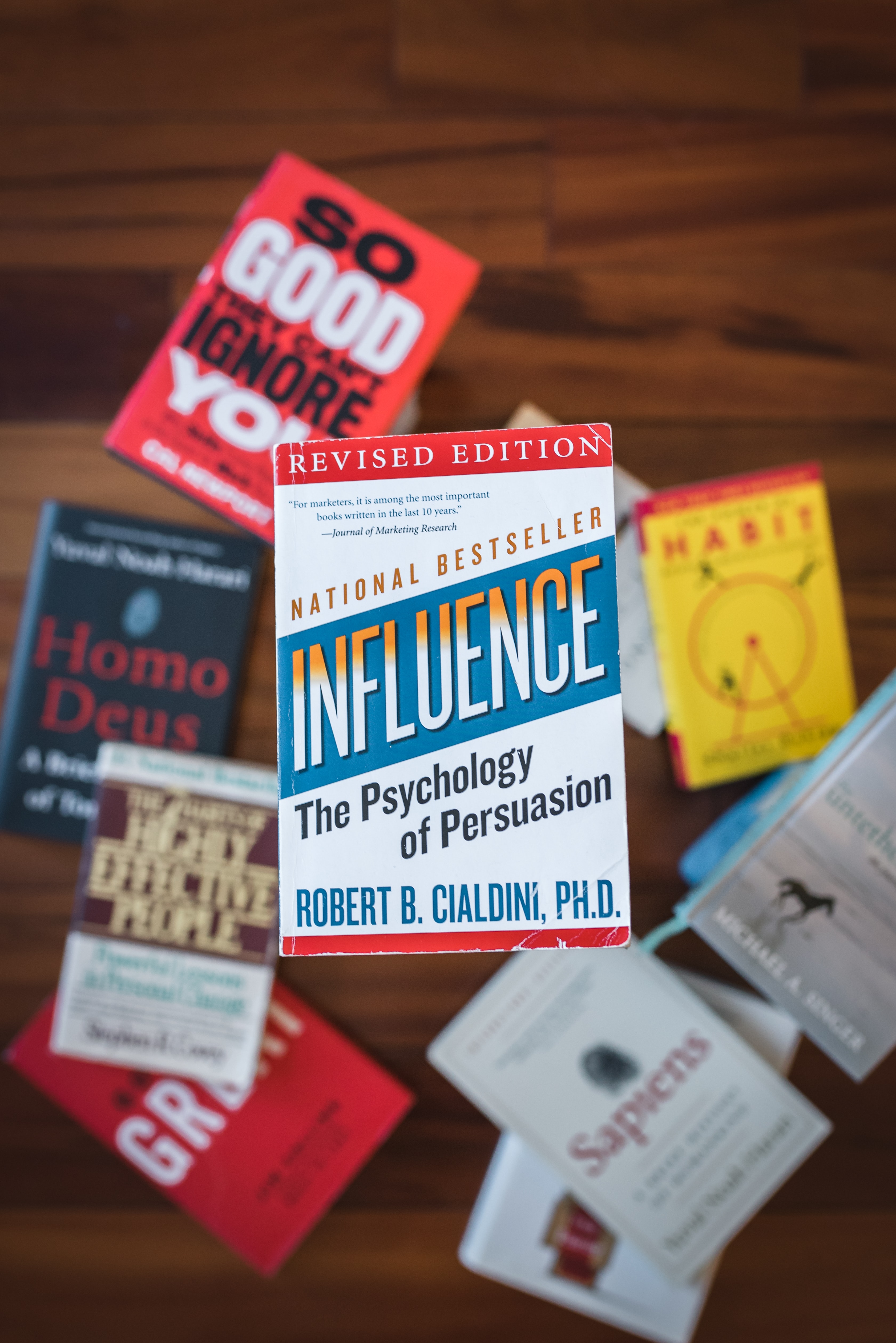The second principle in Robert Cialdini’s bestselling book Influence to consider is Consistency and Commitment. This principle states, “Once people make a decision, take a stand or perform an action, they will face an interpersonal pressure to behave in a consistent manner with what they have said or done previously”. One example he uses to illustrate this principle is a study that was conducted on a beach in which actors staged a theft next to unsuspecting sunbathers to see how they would respond. In the first version a person leaves a radio on their beach towel and takes a walk only to have a thief come and steal it from them. In this scenario, only 20% of the sunbathers attempted to stop the robbery. However, when the owner of the radio asked the person sunbathing next to him to look after his things while he goes on a walk, over 95% of the observers attempted to stop the theft. When you have skin in the game or your personal reputation is at stake you tend to act differently.
As fundraisers, we should be looking for ways to increase the loyalty of our donors in order to inspire a similar response in support of our work. If you were able to improve the success rate of mailed, digital or in person solicitations through the tactics and messages utilized in your engagement with donors wouldn’t you do it? Here are a couple of examples utilizing the principle of consistency and commitment that can help you achieve greater success in future solicitations.
- Request positive feedback from donors: A key to developing a donor’s commitment to your organization is to get them to publicly embrace your mission. With social media, there are numerous ways to request a donor to make a public commitment. The request to ask donors to “Like” a statement that positively describes your mission or impact is a good start. Another example might be to ask donors to reply to a question like “Send us the top reason you support our organization” that will be posted on your website or on social media. Once you’ve inspired donors to respond in this way you should consider a follow up solicitation via email or mail that repeats the top responses you receive to these requests as part of the ask.
- Ask donors to fill out a survey or sign a petition: Asking donors their opinions is always a positive exercise in fundraising. At best, you encourage donors to reinforce what they believe or share new ideas that might inspire increased giving in the future. At worst, they may help identify flaws that donors perceive that will help you improve and show them that their opinions matter. An example of how a survey can lead to bigger gifts might be to ask donors to rank four to five areas of your work on a scale from 1 – 5. Once you have reviewed the results of the survey send a solicitation to donors asking them to support those areas that received the highest marks.
- Ask leading questions that get to yes: This example of consistency and commitment works best in face-to-face solicitation. Rather than walk up to a person and make a cold ask for a gift you should lead up to the solicitation with questions that the donor will likely find agreeable. With every nod of the head or affirmative reaction to your questions, you will be increasing the likelihood of the donor to respond positively to your request. As an example, if you would like a donor to make a major gift in support of new classrooms for your school you might start by asking if the donor agrees that your school is making important impacts in the lives of students who currently attend. If she agrees, you might follow that up by asking her if she agrees that it would be a good thing if more students and families could benefit from attending your school. If she agrees with that statement then the final message to share before making the solicitation is that without a successful campaign to add classrooms the desired growth will be impossible and therefore you hope that the donor will agree that this is a good investment and might consider making a major gift in support of it.
In my next installment on the psychology of solicitation, we will look at the concept of Scarcity.
